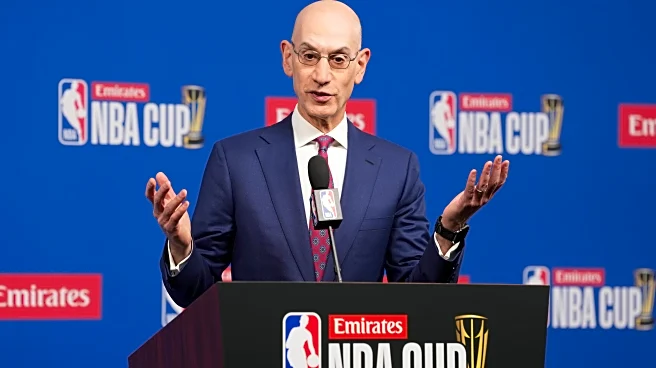Rapid Read • 8 min read
New guidelines are set to restrict paid promotions of less healthy food by influencers, particularly those under 16 or with a significant portion of their audience under 16. These regulations, effective from October 1, aim to prevent influencers from naming or showing recognizable products in paid ads, with exceptions for organic posts. The Advertising Standards Authority will enforce these rules starting January 5. Brands are urged to ensure compliance to avoid fines and protect influencer reputations. The guidelines differentiate between existing HFSS (high in fat, salt, and sugar) restrictions and the new LHF (less healthy food) rules, which apply to 13 specific categories.
AD
These regulations could significantly impact the influencer marketing industry, particularly for brands in the FMCG sector that rely heavily on influencer partnerships. The restrictions aim to reduce the promotion of unhealthy food choices to young audiences, potentially affecting brand strategies and advertising spend. Brands may need to rethink their marketing approaches, focusing on creative solutions that comply with the new rules. The changes highlight the growing scrutiny on influencer advertising and the need for brands to adapt to evolving regulatory landscapes.
Brands and influencers must quickly adapt to these new guidelines, with industry bodies launching awareness campaigns to aid compliance. Agencies are exploring innovative ways to promote products without direct references, such as focusing on brand sentiment and creative collaborations. The industry is expected to undergo shifts in ad spend as it finds a new equilibrium under these regulations. Brands will need to ensure their influencer partners are well-informed to avoid penalties and protect their reputations.
The guidelines reflect broader concerns about the impact of advertising on public health, particularly among young audiences. They underscore the ethical responsibility of brands and influencers in promoting healthier lifestyles. The shift may encourage more responsible marketing practices and foster creativity in how products are advertised, potentially leading to long-term changes in the industry.
AD
More Stories You Might Enjoy












